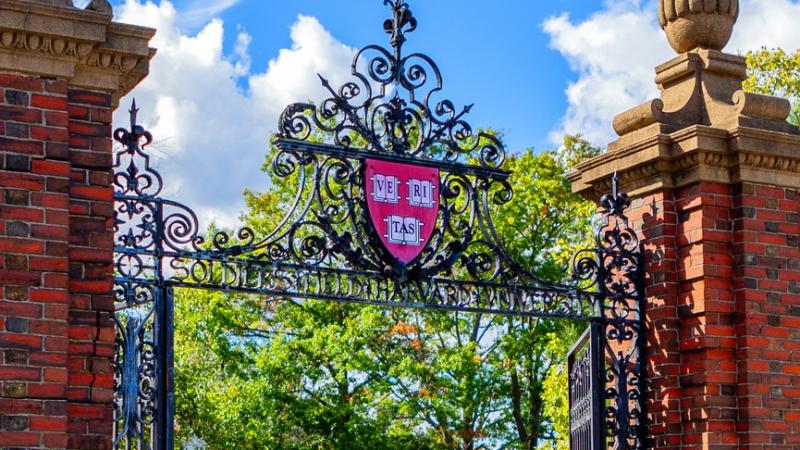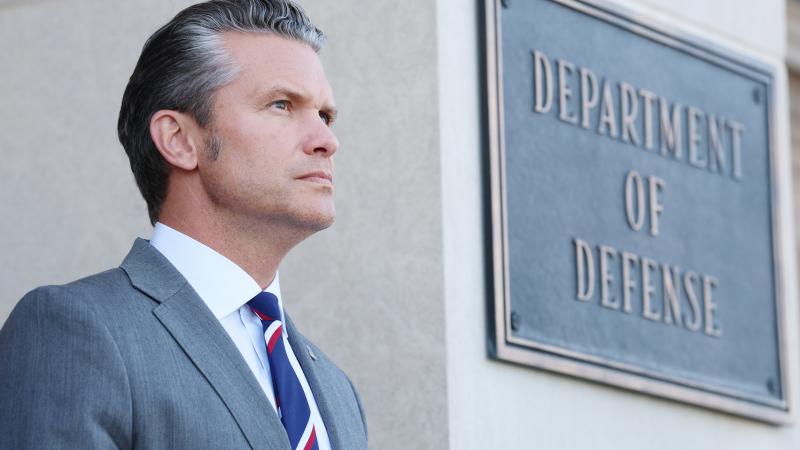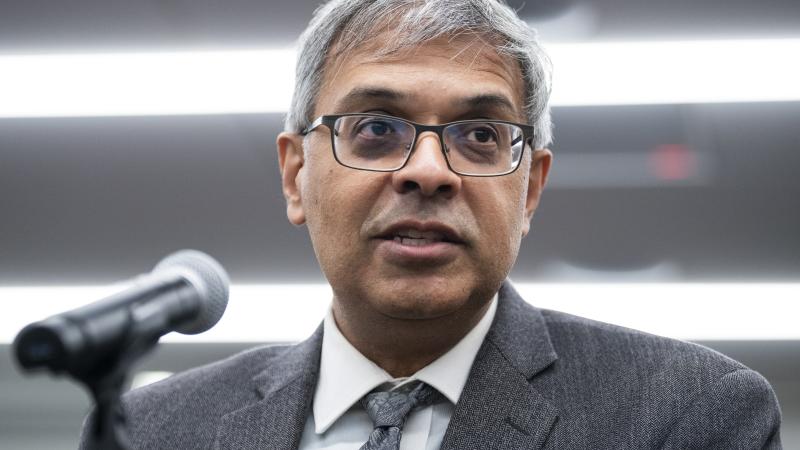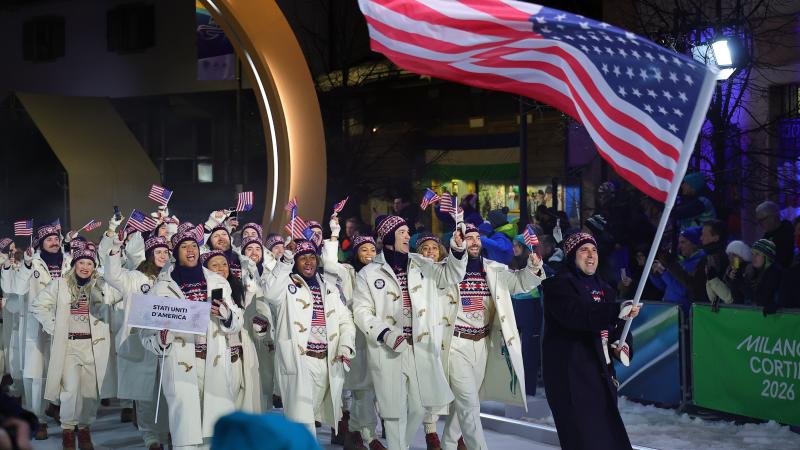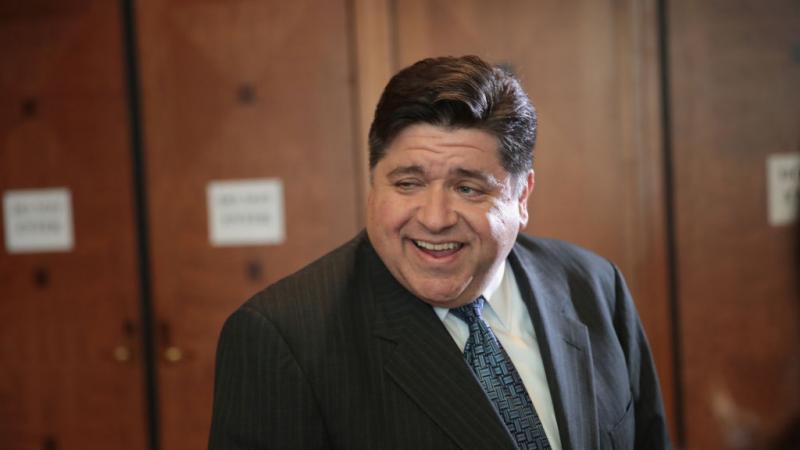Trump's reanimation of the Monroe Doctrine focuses military power on Western Hemisphere
The administration is wielding military power closer to home to protect the homeland, combat illegal immigration, and interdict drug smugglers, reanimating the Monroe Doctrine established in 1823 and strengthened by President Teddy Roosevelt in 1904.
Deploying troops to the border, jet fighters in Puerto Rico, and military strikes on suspected drug trafficking boats—this is what the Trump administration’s spin on the historic Monroe Doctrine looks like.
Both the president and his administration have shifted focus to the region historically dominated by the United States. The "Monroe Doctrine" is explained by the National Archives as "the best known U.S. policy toward the Western Hemisphere." The doctrine established the notions of "spheres of influence" and, the National Archives says, "the doctrine warned European nations that the United States would not tolerate further colonization or puppet monarchs."
Brief history of the Monroe Doctrine as used by presidents past
The Monroe Doctrine was expanded in 1904, when President Theodore Roosevelt strengthened its meaning to justify sending the United States into other countries of the Western Hemisphere. As a result, U.S. Marines were sent into Santo Domingo in 1904, Nicaragua in 1911, and Haiti in 1915.
Historians have also noted that although he did not directly refer to the Monroe Doctrine, a majority of Americans supported on that historical basis President John F. Kennedy's blockade of Cuba during the 1962 "Cuban Missile Crisis."
Back to basics: Preventing foreign influence in the Western Hemisphere
President Donald Trump pressured Panama to push Chinese companies—and, by extension, Chinese Communist Party influence—out of strategic locations along the vital Panama Canal. The president also floated acquiring Greenland, warning the island could be a landing pad of Chinese influence.
The administration is also making use of America’s vast military resources to back its diplomacy, even in seemingly unconventional ways. It has deployed troops to police the southern border, naval vessels to interdict drug smugglers, and aircraft to deter local adversaries—like Venezuela—who clandestinely contribute to the drug trade.
As the Pentagon is working out this new look at the Monroe Doctrine, it is reportedly aiming to enshrine a prioritization of the Western Hemisphere in the upcoming National Defense Strategy—a key document produced in each administration to guide defense planning. This would cement a role for the armed forces in pursuing U.S. interests in the Americas.
A Pentagon spokesperson did not respond to questions from Just the News about the status of the strategy document.
Interdicting boat traffic in the drug-trafficking lanes of the Carribean
President Trump earlier this week touted the strike on a suspected drug trafficking boat tied to Venezuelan gang Tren de Aragua in the Caribbean as a way to punish Maduro for “the drugs pouring into our country…coming out very heavily from Venezuela,” in the words of the president. The use of military force in a drug enforcement operation is in many ways emblematic of the new priorities set by the Trump administration for the Pentagon.
The new role for the U.S. military is not without its critics. Some have raised concerns about whether the president has the legal authority to take military action against cartel interests or drug traffickers without prior congressional authorization.
Secretary of State Marco Rubio, an early adopter of the renewed focus on the Western Hemisphere, defended the action. He told reporters while on a two-day trip to Mexico and Ecuador that previous attempts to curb the illegal flow of drugs into the United States have been futile, suggesting a new approach was necessary and promised the administration would wipe out the cartels "wherever they are."
“What will stop them is when you blow them up, when you get rid of them,” Rubio told the Associated Press in Mexico.
Rubio: Trump had a "mandate to put America first"
In many ways, the U.S. military is now catching up to U.S. diplomacy, which Secretary of State Marco Rubio — himself of Cuban heritage — reoriented in the earliest days in the administration to focus on the region, referring to “An Americas First Foreign Policy,” in a Wall Street Journal op-ed shortly after he was confirmed.
“When Donald Trump won his sweeping victory in November, he received a mandate to put America first. In the realm of diplomacy, this means paying closer attention to our own neighborhood—the Western Hemisphere,” Rubio wrote.
The new focus on the Americas is as much about countering China as it is about the U.S. securing its own backyard.
Rubio’s first trip as Secretary of State was to Panama and other Latin American countries in his first trip abroad, signaling the importance of the region for a second Trump administration that is laser focused on the Chinese threat in the Western Hemisphere.
In recent years, China has taken an important role in Latin America, becoming the region’s top trade partner and investing directly in infrastructure and energy projects. The communist power has also expanded ties with friendly regimes that can create headaches for the United States in its own backyard, like Venezuela, Cuba, and Nicaragua.
Global deterrence starts in our own backyard
Secretary of Defense Pete Hegseth has echoed Rubio and Trump's priorities and has suggested that expanding the role of the U.S. military in the hemisphere is necessary to reestablishing U.S. deterrence globally.
In his confirmation hearing, Hegseth said that defending the homeland—which includes both borders and skies—is a key part in reestablishing deterrence and suggested that it should take precedence over deterring China in the Indo-Pacific region. He later reiterated the goal as part of his “core principles” at a town hall meeting with Defense Department staff after his confirmation.
After seven months, the role of the U.S. military in the realignment has taken firm shape.
By the numbers
Hegseth has deployed more than 10,000 U.S. troops to the U.S./Mexico border to four special military zones and to reinforce border agents in supporting roles. Those troop deployments have helped stem the flow of illegal immigrants and dropped border crossings to 94% compared to April of last year, Just the News previously reported. U.S. Customs and Border Protection (CBP) reported that 128,895 illegal entries were made that month on the southern border under the Biden administration.
Trump also ordered the military to use its resources to directly combat foreign drug cartels, especially targeting the ruling Venezuelan regime and its dictator Nicolas Maduro—even placing a $50 million bounty on the ruler’s head in August.
To aid in the effort, the Department of State designated Tren de Aragua, several Mexican cartels, and even the Venezuelan regime itself, as terrorist groups last February, opening new avenues specifically for the use of military assets to combat them.
In the lead up to the military strike on the suspected Tren de Aragua drug-smuggling vessel, the Pentagon assigned three U.S. Navy vessels to patrol the waters off the coast of Venezuela. After the strike, Venezuelan fighter jets flew over one of those warships in what the Pentagon described as a “show of force.”
This prompted the administration to order 10 F-35 stealth fighter jets to the Caribbean as part of the ongoing anti-drug trafficking operation, significantly escalating the firepower that could be deployed on short notice.
The Facts Inside Our Reporter's Notebook
Links
- a prioritization of the Western Hemisphere
- touted the strike
- raised concerns
- told the Associated Press
- Rubio wrote
- first trip as secretary of state
- taken an important role
- his confirmation hearing
- later reiterated
- more than 10,000 U.S. troops
- four special military zones
- assigned three U.S. warships
- order 10 F-35 stealth fighter jets to the Caribbean

